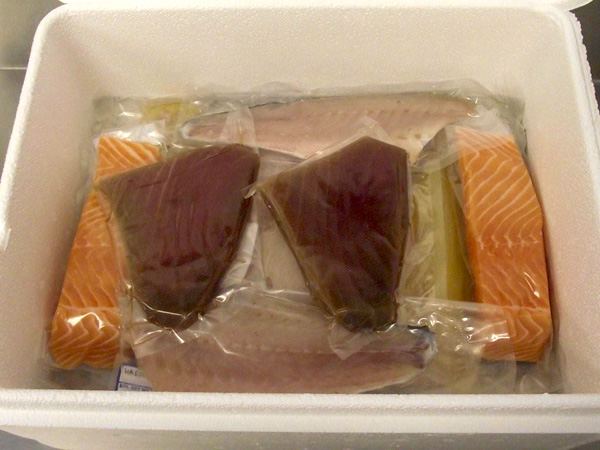“I have received my order of fresh fish & seafood, but I’m having a hard time planning the meals.”
This is a concern that we have heard many times. Planning meals ahead is not always easy; we know everyone does not always have the time of energy to cook a meal from scratch.
Fortunately, there are some tricks you can do to help you save time and money. We have recently shared our tips on weekly meal planning – start by reading them and you’ll have a better idea of the process you can follow to plan your meals ahead.
Chances are you have ordered fish and seafood without thinking about specific meals – which is completely fine. After all, you buy what you like or are curious to try, which is a great start.
Make a list of all the fish & seafood you have. You can specify for each fish if it is white fish or oily fish. This will help make sure you are getting at least the recommended weekly portions of fish, including oily fish.
Look for recipes. There are plenty of recipes available. Look for recipes that specifically includes the fish that you have chosen. Websites we particularly like are BBC Good Food, Jamie Oliver or Great British Chefs. We also regularly share our favourite recipes to inspire you!
Start planning meals. Write down what you will be eating for the coming week, incorporating some of the fish or seafood that you have.
The NHS recommends at least 2 portions of fish a week, including one of oily fish. Check your meals for the week and see if they include at least these two portions. A good idea could be to include a portion of white fish, a portion of oily fish and a portion of seafood.
Freeze the fish that you will not be eating immediately so that it stays fresh.
Prepare fish & seafood. If you bought whole fish, take the time to fillet that fish or cook it if you know you will be eating it soon and won’t have the time to prepare it another time. Lobster is a good example of what you could take the time to prepare. If you are making recipes like a fish pie you can always eat it in the week and freeze part of it for later.
Leave a note on the fridge. If you need to defrost fish for the following day, leave a note on your fridge to remind you to do that the evening before. Fresh fish is at its best if you leave it defrosting naturally instead of the microwave (which can still be a solution if you’re in a rush or forgot to defrost your fish).
Keep the list of all the fish and seafood you received and follow the same guidelines for the week after! That way, you can make sure you have your recommended intake of fish and you will not forget about what you have in the freezer. Remember that we vacuum-pack our fish so even frozen it will stay as fresh as the first day!

